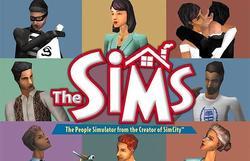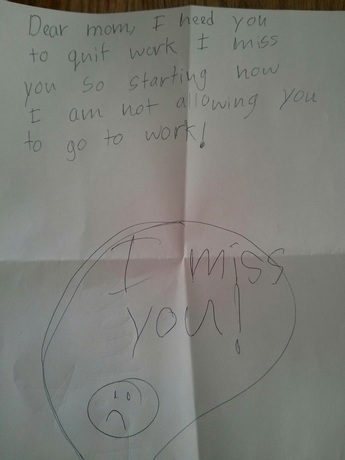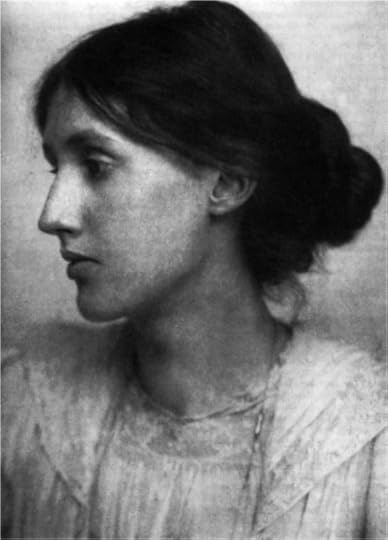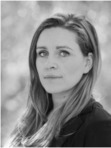Liz Harmer's Blog
December 12, 2016
How to Succeed
We are now two years and four-some months into our move from Southern Ontario in Canada to the Inland Empire in Southern California. The distance is something like 3000 km. A year ago, when Americans would ask me how I like it here, I would say, "At first I was pretty hostile," because I am incapable of necessary politeness sometimes. I have been homesick, especially at this time of year, when a person raised in a climate with seasons has to act as though nightime chilliness is the same as winter. My four-year-old, who, I can admit, doesn't listen to reason, is still wearing sandals in December.
I have been writing and thinking about living here, about the drought and then the San Bernardino shooting and then this Trump disaster, as a person who has dual citizenship, who is both insider and outsider. I have now taught and worked here. I have a story coming out soon that was my first story set in Riverside. But I am still very much in a processing stage, a stage I worry I'll never leave. I feel unable--more unable than ever--to say anything conclusive. What is an American? What is a Californian? I have some inklings, all easily trounced by exceptions. Can an inkling be trounced?
I have also had trouble processing the changes in my writing career. In 2014, when we arrived, I was working on The Amateurs as my thesis project. I was writing about portals and feeling like I'd just gone through one. In 2015, I received the publication deal I had been dreaming of. I wrote several drafts of the next novel. And then, just this month, I discovered that my novel's publication will be delayed: not 2017 but 2018. This was disappointing at first, of course, and now I'm fine. I don't want publication to be so important that I don't know how to live without it.
I have observed people going through the stages of publication--not the editing stages, but the emotional ones. I have a fear, always, of becoming unhinged by surreal or new experiences. I am protective of my sanity, mostly because I am in such need of writing: I don't want publication to affect my ability to write or my love of my craft.
Adam and I have both gone through enormous transitions in the past few years. He has gone from graduate student with little hope of employment (the odds are staggering) to a person with a tenure-track job in Philosophy. I have likewise gone from striving to a certain amount of accomplishment. One thing you learn is that all those things you learned during that striving stage were the important things: how to love your work when there is no hope of succeeding in any material way, and how to do it even when you don't expect to be rewarded for it.
And now I have the political situation to give me other things to do. I'm connecting with others in the community here who are worried about what is to come, and what this election has already wrought.
I have been writing and thinking about living here, about the drought and then the San Bernardino shooting and then this Trump disaster, as a person who has dual citizenship, who is both insider and outsider. I have now taught and worked here. I have a story coming out soon that was my first story set in Riverside. But I am still very much in a processing stage, a stage I worry I'll never leave. I feel unable--more unable than ever--to say anything conclusive. What is an American? What is a Californian? I have some inklings, all easily trounced by exceptions. Can an inkling be trounced?
I have also had trouble processing the changes in my writing career. In 2014, when we arrived, I was working on The Amateurs as my thesis project. I was writing about portals and feeling like I'd just gone through one. In 2015, I received the publication deal I had been dreaming of. I wrote several drafts of the next novel. And then, just this month, I discovered that my novel's publication will be delayed: not 2017 but 2018. This was disappointing at first, of course, and now I'm fine. I don't want publication to be so important that I don't know how to live without it.
I have observed people going through the stages of publication--not the editing stages, but the emotional ones. I have a fear, always, of becoming unhinged by surreal or new experiences. I am protective of my sanity, mostly because I am in such need of writing: I don't want publication to affect my ability to write or my love of my craft.
Adam and I have both gone through enormous transitions in the past few years. He has gone from graduate student with little hope of employment (the odds are staggering) to a person with a tenure-track job in Philosophy. I have likewise gone from striving to a certain amount of accomplishment. One thing you learn is that all those things you learned during that striving stage were the important things: how to love your work when there is no hope of succeeding in any material way, and how to do it even when you don't expect to be rewarded for it.
And now I have the political situation to give me other things to do. I'm connecting with others in the community here who are worried about what is to come, and what this election has already wrought.
Published on December 12, 2016 06:50
October 23, 2016
Unassailable Romantic Life
"I had a blue raincoat. It was a Burberry....It was a very impressive raincoat. I'd never seen one like it...It always resided in my memory as some glamorous possibility that I never quite realized. It began to stand for that unassailable romantic life. The opposite of a cloak of invisibility. The garment that would lead you into marvelous erotic & intellectual adventures"
--Leonard Cohen
Published on October 23, 2016 14:51
June 10, 2016
"the odds that we're in base reality is one in billions."
 Now that I've written a novel that's futuristic (while not really being set in a future), I'm finding lots of weird little parallels to stuff in the world to what I thought were some pretty bizarro invented scenarios. My novel The Amateurs comes out in 2017, and in the Quill & Quire and Publisher's Marketplace announcements last month it was described as a novel of nostalgia, loss, and the possibility of starting over in a world where time-travel portals are as ubiquitous as televisions. (Or refrigerators.)
Now that I've written a novel that's futuristic (while not really being set in a future), I'm finding lots of weird little parallels to stuff in the world to what I thought were some pretty bizarro invented scenarios. My novel The Amateurs comes out in 2017, and in the Quill & Quire and Publisher's Marketplace announcements last month it was described as a novel of nostalgia, loss, and the possibility of starting over in a world where time-travel portals are as ubiquitous as televisions. (Or refrigerators.) Exhibit A: The Smelly Fridges of Fort Mac
My editor at Knopf alerted me to this article about fridges that were abandoned during the disastrous fire at Fort McMurray. There are some parallels The Amateurs, where those remaining have to deal with all kinds of rotting sludge left behind.
From the CBC:
"Perishable food locked in an unrefrigerated box for a month sitting next to the heat of a giant wildfire breaks down quickly. Now, all that food is toxic goo...The movers tape the appliances shut before moving them to prevent an accidental opening. But it's still a messy and difficult job. Matt Walsh, one of the movers, says the tape may keep the doors shut, but the liquefied food can still escape."
Exhibit B: Elon Musk Thinks We're Actually Some Other Guy's Simulation
And this bit of thought experimentation, from one of the most interesting tech guys, has fascinating parallels to my novel also. As Ezra Klein of Vox.com puts it, according to Musk, "Though we think we're flesh-and-blood participants in a physical world, we are almost certainly computer-generated simulations living inside of a more advanced civilization's video game."
Well, it's a fascinating proposition, and might help
to explain why I found playing The Sims so depressing.
Published on June 10, 2016 07:03
January 29, 2016
If I Said I Don't Have Time to Write
Some of the things I have been reading: 1. The Art of Living by [Roman stoic] Epictetus (nonfiction, physical book, library borrow)2. My Brilliant Friend by Elena Ferrante (novel, physical book, own copy)3. The Bone Clocks by David Mitchell (novel, ebook, library borrow)4. The End of the Affair by Graham Greene (novel, audio book from audible, read by Colin Firth)5. Debris by Kevin Hardcastle (short story collection physical book, own copy)6. The poem "Troubadours, Etc" by Mary Syzbist, over and over. 7. A friend's unpublished manuscript (novel, physical copy)8. A friend's unpublished manuscript (poetry, physical copy)Each of these I am reading in different contexts. Some things I read to get me in the mood for writing, and some things I read for my own personal growth, and some for pleasure, and some for research, and some for all of those reasons. I listen to audiobooks when I'm driving, and I have fallen in love with some books this way, The End of the Affair, most recently.
I was on the way to my desk to scrawl this line from The End of the Affair: My reaction to this was mostly that it was a very sweet and affectionate note from a complicated child, and I felt glad that she would tell me this. Several months ago when my husband was going away for a longish conference, she told me she wished it was me going instead, because I'm so mean. That hit me hard--it hurt--and my reaction to that was that I ought to do more for my kids, to have more moral courage and drew all sorts of conclusions that were mainly blown out of proportion. I'm doing my best. I've been doing my best. However, I've been working tons in the last six months, as well as finding time to write; a few days a week I leave before they wake and get home after dinner. But I'm also much much happier.
My reaction to this was mostly that it was a very sweet and affectionate note from a complicated child, and I felt glad that she would tell me this. Several months ago when my husband was going away for a longish conference, she told me she wished it was me going instead, because I'm so mean. That hit me hard--it hurt--and my reaction to that was that I ought to do more for my kids, to have more moral courage and drew all sorts of conclusions that were mainly blown out of proportion. I'm doing my best. I've been doing my best. However, I've been working tons in the last six months, as well as finding time to write; a few days a week I leave before they wake and get home after dinner. But I'm also much much happier.
It would be no good for any of us if I sacrificed all of myself to them; it would be no good if I gave up that reading and writing time to be only with them; it would be no good for us if I said I don't have time to write, I have three kids.
A week later, my husband found a similar note. It urged him to leave his job at the university and suggested that he get a job at a pizza place instead, because he's so good at making pizza and it would be a job "better than most". Here is a child. Her grasp of the math of our lives is new.
I was on the way to my desk to scrawl this line from The End of the Affair:
Happiness annihilates us.when I came across this note:
 My reaction to this was mostly that it was a very sweet and affectionate note from a complicated child, and I felt glad that she would tell me this. Several months ago when my husband was going away for a longish conference, she told me she wished it was me going instead, because I'm so mean. That hit me hard--it hurt--and my reaction to that was that I ought to do more for my kids, to have more moral courage and drew all sorts of conclusions that were mainly blown out of proportion. I'm doing my best. I've been doing my best. However, I've been working tons in the last six months, as well as finding time to write; a few days a week I leave before they wake and get home after dinner. But I'm also much much happier.
My reaction to this was mostly that it was a very sweet and affectionate note from a complicated child, and I felt glad that she would tell me this. Several months ago when my husband was going away for a longish conference, she told me she wished it was me going instead, because I'm so mean. That hit me hard--it hurt--and my reaction to that was that I ought to do more for my kids, to have more moral courage and drew all sorts of conclusions that were mainly blown out of proportion. I'm doing my best. I've been doing my best. However, I've been working tons in the last six months, as well as finding time to write; a few days a week I leave before they wake and get home after dinner. But I'm also much much happier. It would be no good for any of us if I sacrificed all of myself to them; it would be no good if I gave up that reading and writing time to be only with them; it would be no good for us if I said I don't have time to write, I have three kids.
A week later, my husband found a similar note. It urged him to leave his job at the university and suggested that he get a job at a pizza place instead, because he's so good at making pizza and it would be a job "better than most". Here is a child. Her grasp of the math of our lives is new.
Published on January 29, 2016 13:11
January 25, 2016
Woolf on Craft
It's Virginia Woolf's birthday. Better even than to hear how her voice sounded is to hear what her words say:
"Think of what it would mean if you could teach, of if you could learn, the art of writing."
"Do we write better, do we read better than 400 years ago when we were unlettered, uncriticized, untaught?"
"To lay down any laws for such irreclaimable vagabonds [as words] is worse than useless"

"Think of what it would mean if you could teach, of if you could learn, the art of writing."
"Do we write better, do we read better than 400 years ago when we were unlettered, uncriticized, untaught?"
"To lay down any laws for such irreclaimable vagabonds [as words] is worse than useless"

Published on January 25, 2016 11:15
October 23, 2015
"I was always going to die at the end anyway"
On the eve of my eldest daughter's eighth birthday, here's to eight years of getting good at the letting go, from Miranda July's wonderful The First Bad Man:
"But as the sun rose I crested the mountain of my self-pity and remembered I was always going to die at the end anyway. What did it really matter if I spent it like this–caring for this boy–as opposed to some other way? I would always be earthbound; he hadn’t robbed me of my ability to fly or to live forever. I appreciated nuns now, not the conscripted kind, but modern women who chose it. If you were wise enough to know that this life would consist mostly of letting go of things you wanted, then why not get good at the letting go, rather than the trying to have? These exotic revelations bubbled up involuntarily and I began to understand that sleeplessness and vigilance and constant feedings were a form of brainwashing, a process by which my old self was being molded, slowly but with a steady force, into a new shape: a mother. It hurt. I tried to be conscious while it happened, like watching my own surgery. I hoped to retain a tiny corner of the old me, just enough to warn other women with. But I knew this was unlikely; when the process was complete I wouldn’t have anything left to complain with, it wouldn’t hurt anymore, I wouldn’t remember.”
"But as the sun rose I crested the mountain of my self-pity and remembered I was always going to die at the end anyway. What did it really matter if I spent it like this–caring for this boy–as opposed to some other way? I would always be earthbound; he hadn’t robbed me of my ability to fly or to live forever. I appreciated nuns now, not the conscripted kind, but modern women who chose it. If you were wise enough to know that this life would consist mostly of letting go of things you wanted, then why not get good at the letting go, rather than the trying to have? These exotic revelations bubbled up involuntarily and I began to understand that sleeplessness and vigilance and constant feedings were a form of brainwashing, a process by which my old self was being molded, slowly but with a steady force, into a new shape: a mother. It hurt. I tried to be conscious while it happened, like watching my own surgery. I hoped to retain a tiny corner of the old me, just enough to warn other women with. But I knew this was unlikely; when the process was complete I wouldn’t have anything left to complain with, it wouldn’t hurt anymore, I wouldn’t remember.”
Published on October 23, 2015 06:55
May 13, 2015
Hungry Monsters Suddenly Appear
Over the past few weeks, I've been reading Kierkegaard for the first time, a short book called "Repetition: an Essay in Experimental Psychology." It's funny and weird and has led to more than a few very nerdy jokes between me and Adam, my in-house philosopher. I've also been continuing to dip into Wittgenstein, which is much less fun than Kierkegaard, though his biography is very compelling.
I'm transitioning out of life as an MA student with a thesis to finish and all of the support that entails. I got a part-time job here at a library, and I have many projects on the go, as well as a new writing community through a workshop I'm taking at Chapman University with Richard Bausch and the MFA program here in Riverside. We have a wonderful independent bookstore, here, and though I complain too much--there have been so many things to get used to--really, Riverside is full of smart, interesting people and there's plenty to do.
The difficulty is mainly trying to manage the things I've always been managing: ambition vs. motherhood, the dictates of the academic life, which are exciting but lead one to feel helpless. Finding time to read and write while the house falls apart around me, and the selfishness of that.
"When a girl becomes unhappy, hungry monsters suddenly appear, monsters that want to satisfy their psychological hunger and thirst by writing novels" (from "Repetition", Soren Kierkegaard)I'm reading the Kierkegaard for a personal essay I'm working on to do with forms of rewatching, and I'm reading the Wittgenstein (reading AROUND the Wittgenstein, anyway), for a short story I'm writing, the first one to be set in Southern California.
I'm transitioning out of life as an MA student with a thesis to finish and all of the support that entails. I got a part-time job here at a library, and I have many projects on the go, as well as a new writing community through a workshop I'm taking at Chapman University with Richard Bausch and the MFA program here in Riverside. We have a wonderful independent bookstore, here, and though I complain too much--there have been so many things to get used to--really, Riverside is full of smart, interesting people and there's plenty to do.
The difficulty is mainly trying to manage the things I've always been managing: ambition vs. motherhood, the dictates of the academic life, which are exciting but lead one to feel helpless. Finding time to read and write while the house falls apart around me, and the selfishness of that.
Published on May 13, 2015 09:25
March 13, 2015
Babies Weren't Babies
Babies weren’t babies—they were land mines; bear traps; wasp nestsRecent Reading:
(Kelly Link)
A very talented friend of mine recommended I read Kelly Link's "Stone Animals" and I was not disappointed. It's a brainy, weird story:
"When Carleton was three months old, Henry had realized that they’d misunderstood something. Babies weren’t babies—they were land mines; bear traps; wasp nests. They were a noise, which was sometimes even not a noise, but merely a listening for a noise; they were a damp, chalky smell; they were the heaving, jerky, sticky manifestation of not-sleep". - More of "Stone Animals" here.
I also read this essay on Wittgenstein's short time as an elementary school teacher. His biography interests me (I'm trying to incorporate it into a story I'm writing about a professor here in SoCal who hates palm trees), but I had no idea how interesting his ideas on education would be.
"But Wittgenstein was “interested in everything,” and he engaged his students in a sort of “project-based learning” that wouldn’t be out of place in the best elementary classrooms today. They designed steam engines and buildings together, and built models of them; dissected animals; examined things with a microscope Wittgenstein brought from Vienna; read literature; learned constellations lying under the night sky; and took trips to Vienna, where they stayed at a school run by his sister Hermine. Just to get to the train required a twelve-mile hike through the mountainous forest around Trattenbach; on the return trip, the students made this hike after midnight" --Spencer Robins
Published on March 13, 2015 11:03



